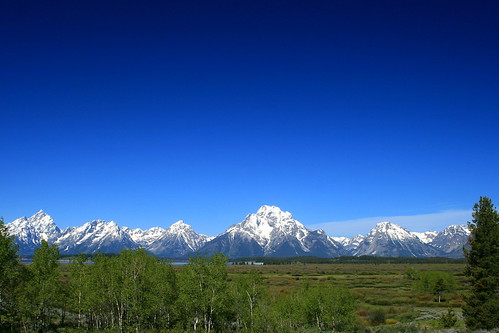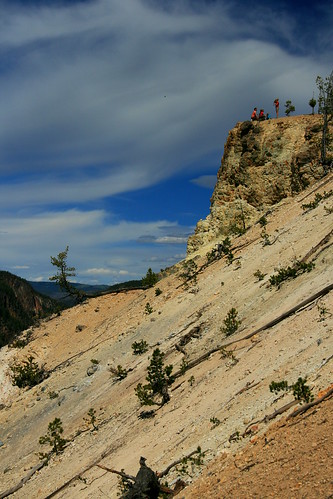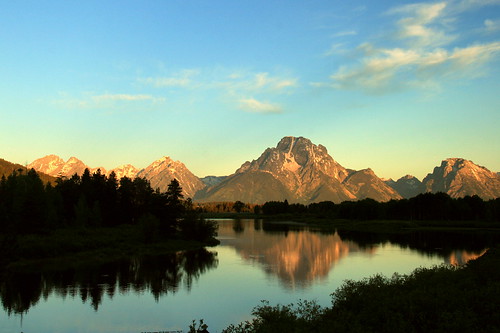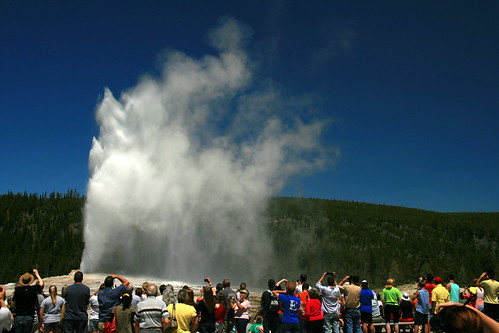In previous years, we have started class in Grand Teton National Park. We often have students who choose to fly, so we pick them up at the Jackson airport. Being further south than Yellowstone, GTNP is also a little bit closer to Illinois, and we can cover the 1350 miles in two days.
Seeing the Tetons first can shape students’ views of Yellowstone in negative ways. For many students, Yellowstone can be a bit of a disappointment, as they decide that they like the spectacular scenery of the Tetons more. Jackson Hole also has a more visible elk population, which shapes students’ perceptions of the landscape. Wildlife such as moose is more dependably visible on Teton trails.
Interestingly, seeing Yellowstone first in 2013 produced the same result – the Tetons show better. The reasons varied a little. Students preferred the scenery in the Tetons to that in Yellowstone. Students preferred the feel of Teton trails over the boardwalks and greater development of Yellowstone’s trails, even in the backcountry.
Students also though that the Tetons attracted “higher quality” hikers, even on the very popular trail to Inspiration Point. It’s been interesting to me that “lower quality” hikers (unprepared in clothing, supplies and demeanor) make my students view a trail as more like developed frontcountry.
This year’s wildlife viewing was not noticeably better in either park. We did not see pronghorns in either park, though we saw many outside the parks. We did not see moose, wolves or bighorn. We did see some smaller species for the first time in my classes, notably badger and pika. Yet even without wildlife sightings, students preferred the Tetons.
Is there something wrong with Yellowstone? You can’t do much about the scenery. The Tetons are one of the world’s great mountain ranges in scenic terms. Yellowstone has the Absaroka, Beartooth, Gallatin, Red, and Washburn ranges — all beautiful but they do not match the Tetons. Spectacular as Yellowstone Lake is, Jackson Lake has the better setting.
More important than the scenery, the visitor experience in Yellowstone clearly impacts the students’ own visitor experiences in undesirable ways. Visitors are more likely to seem ill-prepared in Yellowstone, are more likely to stick to the parking lots, and seem to crowd the wildlife more. That makes Yellowstone seem less natural, even less “wild.”
Sadly, in the world’s first national park, visitors can be a problem for other visitors.








